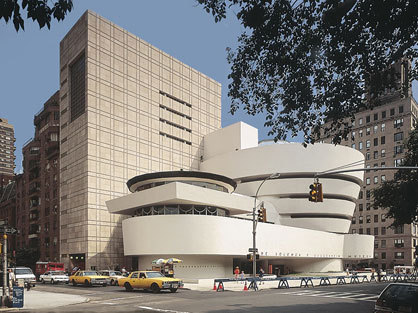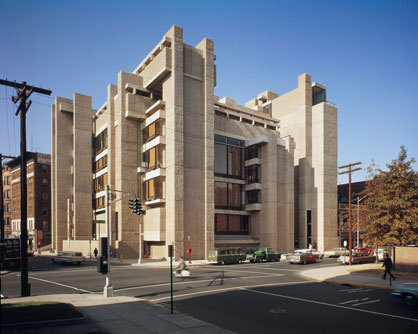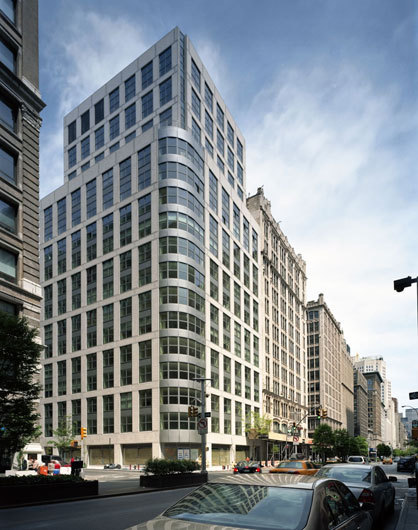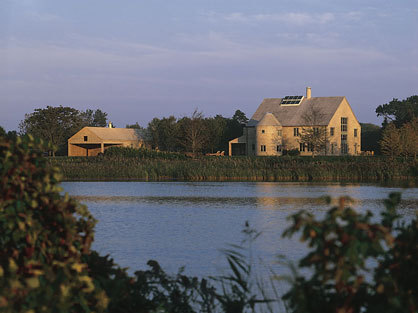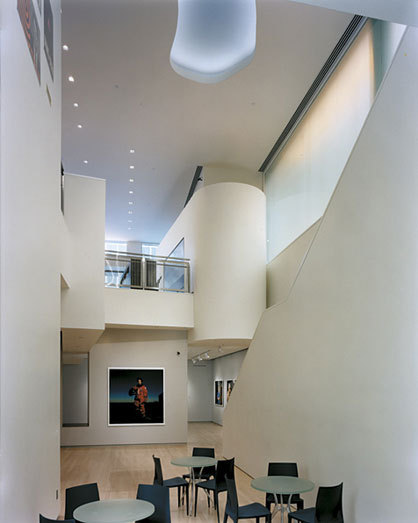"You will remember the experience"
Texte par NoéMie Schwaller
Zürich, Suisse
12.08.09
Last Monday, 3 August 2009, Charles Gwathmey, the American architect and co-founder of Gwathmey Siegel & Associates Architects (1969), died at the age of 71.
Last Monday, 3 August 2009, Charles Gwathmey, the American architect and co-founder of Gwathmey Siegel & Associates Architects (1969), died at the age of 71.
Gwathmey, the only child of photographer Rosalie Gwathmey and painter Robert Gwathmey, was born on 19 June 1938 in Charlotte N.C. When he was eleven a twelve-month journey with his father awakened his passion for architecture. "My father took me out of school for a year. He wanted me to see art and architecture simultaneously. This year sort of consolidated the idea that I had to build. Every museum, palace, cathedral, every building experience we had kept confirming and reconfirming this idea." (Interview by Charlie Rose, 2000)
Solomon R. Guggenheim Museum - Renovation and Addition. Photo: Jeff Goldberg/Esto
Gwathmey Siegel expanded Yale School of Art and Architecture 2008
Known above all for the controversial renovation of the Guggenheim Museum NYC by Frank Lloyd Wright, Charles Gwathmey was presented with the 'Lifetime Achievement Award' of the New York State Society of Architects in 1990. He passed on his architectural knowledge by lecturing at top universities such as Harvard, Yale, Princeton and Columbia.
Charles Gwathmey on the 2005 luxury apartment block Astor Place Tower: "Our architecture historically has always been sculptural. It's conceived and persieved in 3 dimensions. This site beeing free and beeing able to build an object that has multi-facades, it is not frontal or sideways; it has no front and back. It truly is a rotational object. It is consistent with the ethic of our work. In Astor Place you are living in a totally transparent condition, which gives you phenomenal views and perspectives."
Astor Place Tower, a 21-story condominium project in Manhattan's East Village, 2005. Photo: Hubert Steed
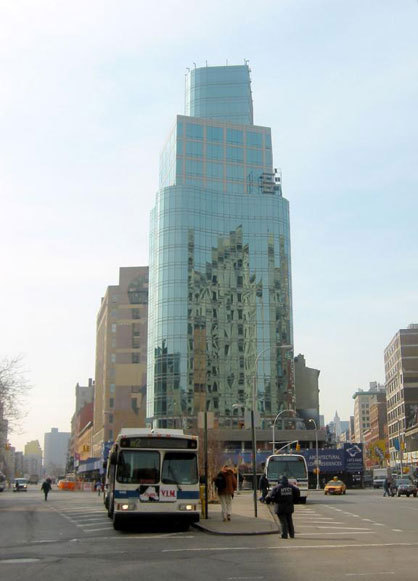
Astor Place Tower, a 21-story condominium project in Manhattan's East Village, 2005. Photo: Hubert Steed
×Gwathmey's modernist architecture is characterised by geometrical form and the complex use of space. As architectural objects small houses were as important to him as a high-rise building or a palace. "Thinking of a house as a building and dealing with all the things one does, they are as viable and as critical to the history of architecture as any other building. More or less they all have a sense of place, they have a phenomenal density of purpose and they have a spirituality which is unforgettable. If you went into any of those building you will remeber them for your life, even if you never saw them again. You will remember the experience and you will remeber that time as an absolutely isolated transformation." he told PBS' Charlie Rose in 2000 (Los Angeles Times, 5. August 2009)
Spielberg Residence. Photo: Richard Bryant/Arcaid
Talking in 1996 about his membership of the informal 'Five Architects' network, also known as 'The Five Whites', with Peter Eisenman, Michael Graves, John Hejduk and Richard Meier he said: "We wanted to prove that architecture was not only about image, but about idea." 'Five Architects' "regarded their designs as a critical comment on the architecture of the Sixties and identified with the rational modern movement of the Twenties led by Le Corbusier, De Stijl and others." (wikipedia). In the interview with Charlie Rose Gwathmey explains the significance of Five Architects as follows: "It established for the first time in America a dialogue among architects about architecture and about ideas. It started a new wave of theories and interaction that wasn't here before."
International Center of Photography (ICP). Photo: Paul Warchol Photography Inc.
Charles Gwathmey is survived by his wife, daughter and stepson.


